BJJ Gi vs Karate Gi – A Comprehensive Comparison
Table of Contents:
- Introduction
- Understanding BJJ Gi
- Insight into Karate Gi
- Key Differences between BJJ Gi and Karate Gi
- Factors to Consider When Choosing Between BJJ Gi and Karate Gi
- Conclusion
1. Introduction:
Martial arts enthusiasts often find themselves faced with the dilemma of choosing the right attire for their training sessions. Among the array of options available, two prominent choices stand out: BJJ Gi and Karate Gi. While both serve as essential components of their respective disciplines, understanding the nuances between them is crucial for practitioners seeking optimal performance and comfort.
2. Understanding BJJ Gi:
The Brazilian Jiu-Jitsu Gi, commonly referred to as BJJ Gi, holds significant importance in the practice of Brazilian Jiu-Jitsu. Crafted from durable materials and featuring a tailored design, the BJJ Gi is specifically engineered to withstand the rigorous demands of ground-based grappling techniques. Its construction includes reinforced stitching and a sturdy collar, facilitating a firm grip for executing submissions and controls. The BJJ Gi’s distinctive characteristics emphasize durability, flexibility, and resistance to tearing, making it an indispensable asset for BJJ practitioners worldwide. If you’re in the market for high-quality BJJ Gis, look no further than Bravo BJJ, where you can find a wide selection of top-notch options at discounted prices. Whether you’re a seasoned practitioner or just starting your Brazilian Jiu-Jitsu journey, their collection of BJJ Gis offers durability, comfort, and style to enhance your training experience.
3. Insight into Karate Gi:
In contrast to the BJJ Gi, the Karate Gi, also known as Karategi, embodies the essence of traditional martial arts attire. Characterized by its lightweight fabric and loose-fitting design, the Karate Gi prioritizes freedom of movement and agility, essential for executing swift strikes and fluid techniques. Traditionally crafted from cotton or polyester blends, the Karate Gi features a simplistic yet elegant appearance, reflecting the cultural heritage and discipline of Karate. With its emphasis on mobility and comfort, the Karate Gi remains a symbol of tradition and reverence in the world of martial arts. Similarly, if you’re searching for premium Karate Gis, Bravo BJJ has you covered with a range of options tailored to meet the needs of Karate practitioners of all levels. Explore their selection of Karate Gis to find the perfect fit for your training regimen and elevate your martial arts practice.
4. Key Differences between BJJ Gi and Karate Gi:
While both the BJJ Gi and Karate Gi serve as indispensable attire for their respective disciplines, they exhibit distinct characteristics tailored to the specific requirements of Brazilian Jiu-Jitsu and Karate. The primary differences between the two lie in their design, material composition, and intended use. The BJJ Gi, designed for ground-based grappling and submission techniques, features reinforced stitching, a thicker collar, and a more tailored fit to withstand intense training sessions and competitions. In contrast, the Karate Gi prioritizes lightweight fabric, loose-fitting attire, and minimalistic design, facilitating fluid movement and agility during striking and defensive maneuvers.
5. Factors to Consider When Choosing Between BJJ Gi and Karate Gi:
When faced with the decision between a BJJ Gi and Karate Gi, several factors come into play, including the practitioner’s training goals, preferred martial arts discipline, and personal preferences. For individuals focused on Brazilian Jiu-Jitsu, investing in a high-quality BJJ Gi offers durability, grip control, and resilience to ground-based techniques. Conversely, practitioners immersed in the art of Karate may gravitate towards the lightweight and breathable design of the Karate Gi, prioritizing mobility and comfort during training sessions and competitions. Ultimately, selecting the ideal Gi depends on aligning its features with the practitioner’s specific needs and martial arts goals. Additionally, for a comprehensive comparison encompassing BJJ Gi, Judo Gi, and Karate Gi, exploring the nuances among these martial arts uniforms, this article on BJJ Gi vs Judo Gi vs Karate Gi offers valuable insights into their respective designs, functionalities, and purposes.
6. Conclusion:
In conclusion, the choice between a BJJ Gi and Karate Gi hinges on understanding the unique characteristics and requirements of each martial arts discipline. While the BJJ Gi emphasizes durability and grip control for ground-based grappling techniques, the Karate Gi prioritizes mobility and agility for striking and defensive maneuvers. By considering factors such as material composition, design, and intended use, practitioners can make informed decisions when selecting the most suitable attire for their training endeavors. Whether opting for the resilience of a BJJ Gi or the tradition of a Karate Gi, both serve as indispensable companions on the journey towards martial arts mastery.
FAQs about BJJ Gi vs Karate Gi:
Q1. What are the main differences between a BJJ Gi and a Karate Gi?
A: The main differences lie in their design, material composition, and intended use. BJJ Gis are tailored for ground-based grappling techniques, featuring reinforced stitching and a thicker collar, while Karate Gis prioritize lightweight fabric and loose-fitting attire for agility during striking and defensive maneuvers.
Q2. Can I use a BJJ Gi for Karate training or vice versa?
A: While it’s technically possible to use a BJJ Gi for Karate training or vice versa, it’s not ideal. The design and features of each Gi are optimized for the specific demands of Brazilian Jiu-Jitsu and Karate, respectively. Using the appropriate Gi for your discipline ensures optimal performance and comfort.
Q3. What factors should I consider when choosing between a BJJ Gi and a Karate Gi?
A: factors such as your training goals, preferred martial arts discipline, and personal preferences. If you’re focused on ground-based grappling techniques, a BJJ Gi offers durability and grip control. For striking and defensive maneuvers in Karate, a lightweight and breathable Karate Gi may be more suitable.
Q4. Are there specific rules regarding Gi usage in BJJ and Karate competitions?
A: Yes, both BJJ and Karate competitions have specific rules regarding Gi usage. BJJ competitions may have regulations regarding the color, stitching, and size of patches on Gis. Karate competitions often require traditional white Gis with limited embroidery and patches.
Q5. Can I wear a BJJ Gi or Karate Gi for casual training in other martial arts?
A: While it’s possible to wear a BJJ Gi or Karate Gi for casual training in other martial arts, such as Judo or Taekwondo, it’s essential to consider the specific requirements and preferences of each discipline. Some martial arts may have rules or customs regarding Gi usage that differ from Brazilian Jiu-Jitsu and Karate.
Q6. How do I ensure the proper fit of a BJJ Gi or Karate Gi?
A: To ensure the proper fit, refer to the sizing charts provided by reputable Gi manufacturers. Take accurate measurements of your body, including height, weight, and arm length, and compare them to the sizing chart. Additionally, consider factors such as shrinkage and fabric elasticity when selecting the appropriate size.
Q7. What are the typical features of a BJJ Gi and a Karate Gi?
A: BJJ Gis often feature reinforced stitching, thicker collars, and a tighter fit to prevent opponents from gaining grips. They may also include ripstop fabric and reinforced knee pads for durability during ground grappling. In contrast, Karate Gis are typically lightweight with a looser fit, allowing for ease of movement during strikes and kicks. They may have longer jacket skirts and wider sleeves for traditional Karate techniques.
Q8. Are there specific care instructions for maintaining a BJJ Gi or Karate Gi?
A: Yes, proper care is essential to prolong the lifespan of your Gi. For both BJJ and Karate Gis, it’s recommended to wash them in cold water with mild detergent and avoid using bleach or fabric softeners. Hang drying is preferable to prevent shrinkage, and avoid leaving them in direct sunlight for extended periods. Additionally, check the manufacturer’s care instructions for any specific recommendations.
Q9. Can I personalize my BJJ Gi or Karate Gi with patches or embroidery?
A: Many practitioners choose to personalize their Gis with patches or embroidery to represent their affiliations or achievements. While this is common in Brazilian Jiu-Jitsu, where Gis often feature team logos and sponsor patches, Karate Gis traditionally have minimal decoration. Check the rules of your martial arts school or competition to ensure compliance with any guidelines regarding Gi customization.
Q10. How do the prices of BJJ Gis and Karate Gis compare?
A: The prices of BJJ Gis and Karate Gis can vary depending on factors such as brand, material quality, and additional features. Generally, BJJ Gis tend to be more expensive due to their specialized design and reinforced construction. Karate Gis may be more affordable, especially for entry-level options made from lighter-weight fabric.
Q11. Can I cross-train between Brazilian Jiu-Jitsu and Karate using the same Gi?
A: While cross-training between Brazilian Jiu-Jitsu and Karate is beneficial for overall martial arts skills, it’s recommended to use the appropriate Gi for each discipline. This ensures that you can fully engage in the techniques and training methods unique to each martial art without compromising performance or comfort.
Q12. Where can I find reputable brands offering BJJ Gis and Karate Gis?
A: Reputable brands offering BJJ Gis include Tatami Fightwear, Fuji, and Hayabusa, known for their quality craftsmanship and durability. For Karate Gis, brands such as Adidas, Tokaido, and Shureido are recognized for their traditional designs and premium materials. Online retailers and specialty martial arts stores are excellent sources for purchasing authentic Gis from trusted brands.

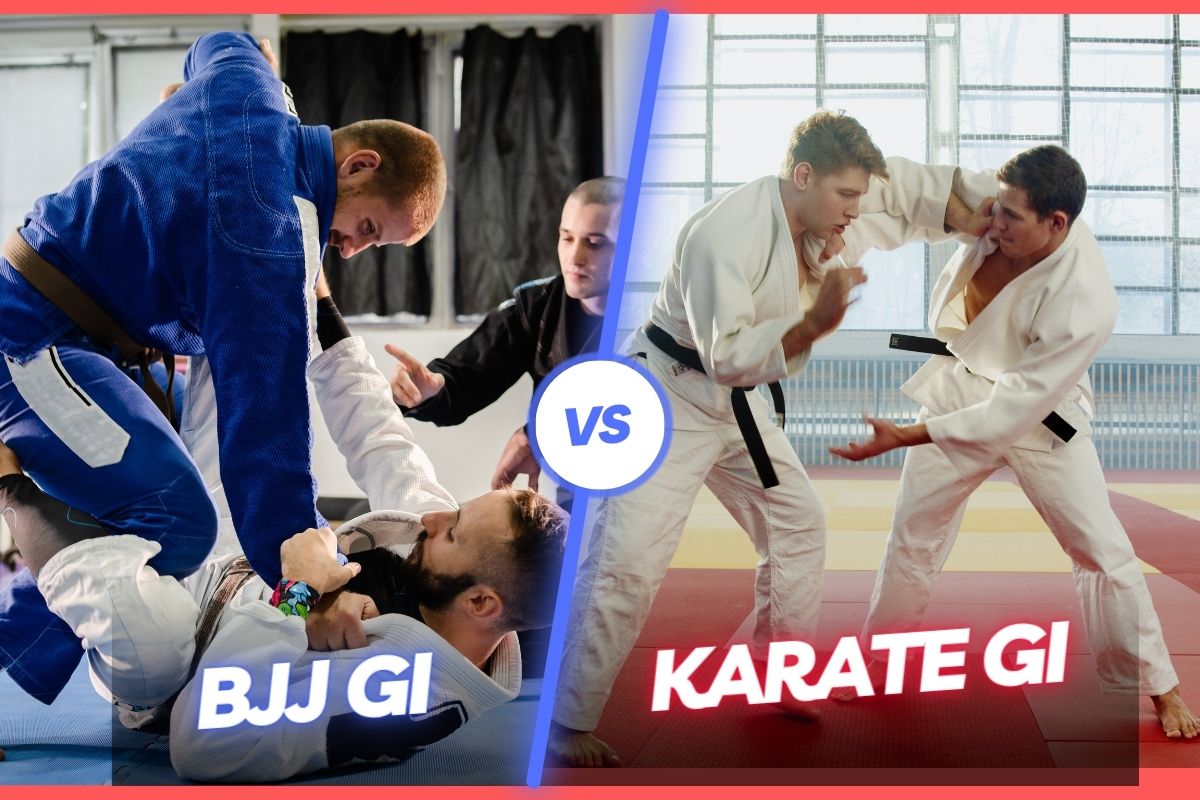



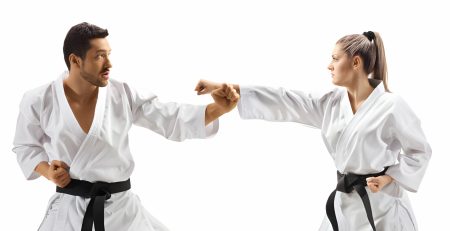
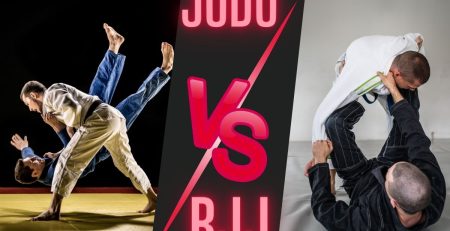
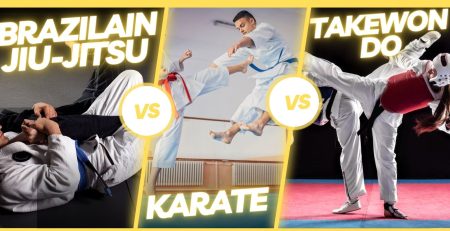
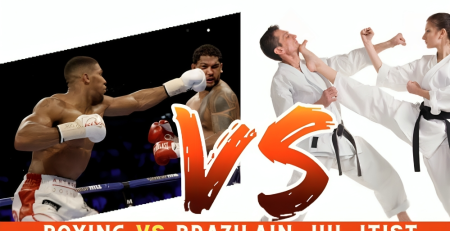


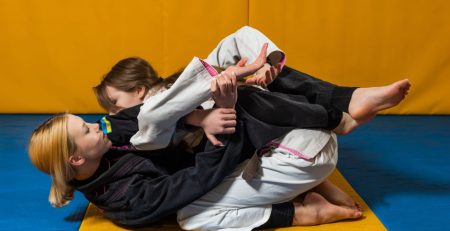

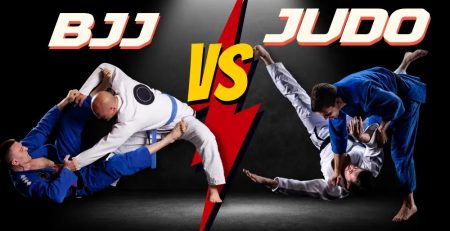

Leave a Reply
You must be logged in to post a comment.